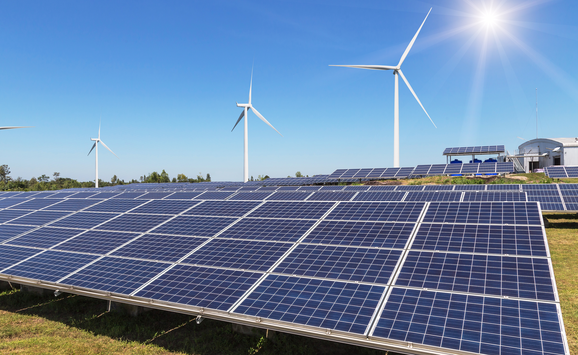A shocked public that asked, "Did we have any warning?" after 9/11 already knows the answer when it comes to oil insecurity - "Absolutely!" The open question is what policymakers will do to address the oil threat. A lame-duck Congress is considering expanded offshore drilling, but the better answer is not finding more oil; it's finding alternatives to more oil. Moving investment from risky, environmentally degrading oil to secure, clean, sustainable energy is the best social insurance policy this country can buy.
This is a policy of public action to improve the functioning of a truly imperfect private market. Polls show that public opinion favors a policy of active transition away from oil, but not a tax on consumption that would best accomplish it. However, another source of funding does pass public muster - the oil industry itself. An excise tax on U.S. production to fund new oil-saving technology would have popular support and generate social benefits in the form of energy security and leadership far greater than its social costs.
Investment in crude oil is more rewarding for oil companies than for the nation, because society bears costs that are not reflected in the price that oil companies receive. These added costs include the burden of protecting access to geopolitically risky oil supplies in dollar and human terms and in compromised ability to conduct foreign policy, the disadvantage of funds flowing to autocratic and adversary governments and filtering out to hostile militant groups, and the contribution to global warming and other environmental damage.
Oil consumption is also costly as an accident waiting to happen - a someday supply shortfall with serious economic consequences, whether from hostile attack, producer initiative, market disintegration, natural disaster, infrastructure malfunction, or demand overrun.
These costs and risks will persist and grow over time - we will keep paying the oil piper. Price swings in a volatile market or spikes in a crisis situation will strike our macro-economy based on our usage, not our imports, since our domestic barrels will be re-priced to the same world level as foreign barrels. Accordingly, policies that encourage domestic production - for example, through financial concessions or disregard of environmental costs - do little to address our major security risk, the threat of a significant supply disruption. Spending large amounts of money on high-cost domestic oil to modestly extend the more than 30-year decline curve of U.S. production will not reduce the risk of an oil crisis or provide a material cushion if one occurs.
At the margin, funds now planned for finding and developing new production will have much greater value if spent on forestalling the need for that production. The benefits of speedier separation from oil and increased 21st century competitive advantage through a well-conceived portfolio of private and public investments in research and development (R&D), demonstration, and deployment of oil efficiency, conservation, and alternative fuel technologies dwarf the value of temporarily backing out a slice of foreign oil - or slightly easing the devastation if a crisis hits.
The vehicle for this redirection of investment energy is an Oil Freedom Fund (OFF), financing a portfolio of private incentives and public R&D through an excise tax on U.S. oil production. An excise tax that shaves the top off the highest-cost production projects - for example, a tax equal to 35 percent of the market price over $45 per barrel - will concentrate its marginal effects on the outer edge of potential production, a part of the prospective supply curve where oil price risk already works to inhibit investment commitments. Such a tax would raise $10 billion next year at projected levels of production and prices averaging $60 per barrel. Deployed by OFF, these dollars would help move us off oil at a pace driven by our own ingenuity and determination, not the pace set by a yoyo-ing market dominated by the interests of others.
The excise tax will marginally lower U.S. production - not as a coincidental side effect of capturing "windfall profits," but as a purposeful redirection of funds. The economic rationale for the tax is not based on fairness or the appropriateness of industry receipts. However, by targeting the upper end of the oil price range, it will capture funds at a time when industry is doing well and buyers are stretched. By taxing only U.S. production, it will focus the incidence of the tax on producers, with limited potential for pass-through to consumers, since the price of most supply - that is, imports - will not be directly affected. Directionally, once an OFF structure is in place and oil companies are contributing to it, the idea of a companion tax on oil consumption will gain more traction, providing proper incentives to both consumers of oil and producers of oil savings, and helping to stabilize funding if a volatile, cyclic oil market swings through another trough.
In the big world of oil markets - where ExxonMobil spent $20.2 billion in the first three quarters of this year to buy back its stock - an excise tax "icebreaker" of $10 billion a year will have only a small effect, but it will transform the lean world of oil-saving R&D. A large public-interest advance in energy security and leadership can be pursued for a small shift in the private market that will not deliver either.
Our future well-being as a nation depends on oil reduction, not oil production. Moving from oil exposure to secure, sustainable energy is one of the biggest engines of stability, prosperity, and advantage we have in a world of challenges growing up around us. It's time for us to bite the barrel.
![]()




